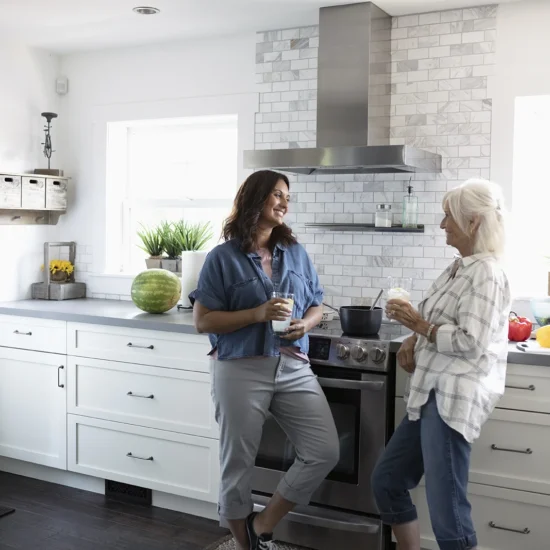
Adult Services
Recovery & Community for Adults with Mental Illness
MHA’s Adult Community-Based Services work to promote the health and well-being of adults who have a serious mental illness by helping the individual manage their illness in order to lead a healthy, productive life. Services and treatment plans are individualized to promote recovery and independence. We promote increasing community engagement, and enhancing personal relationships while building coping strategies and daily living skills.

Case Management
Individuals participating in case management work collaboratively with their case manager on recovery and integration into the community.
Case management focuses on:
- Accessing medical and social services
- Problem-solving
- Crisis support
- Resource linking
- Individual skill building
- Empowering consumers to reach their education, employment and other life goals
- Supported Education

Peer Support
This program provides peer-to-peer services designed to promote skills for coping with and managing mental health symptoms as well as developing a network of information and support from others who have been through similar experiences.
Support includes:
- Providing information and helping consumers identify and share what works in their recovery.
- Sharing experiences and creating new strategies related to individual goals.
- Regaining the ability to make independent choices and taking a pro-active role in treatment.
- Accessing new resources and enhancing natural resources to build a network for information and support.
- Implementing the expansion of skills and attempt to practice those skills in the community to move forward in the recovery process.

Peer Groups
Groups are available to any adult enrolled in adult peer services
Groups focus on skills to help consumers:
- Live independently
- Manage chronic diseases
- Quit smoking
- Weight loss
- Make healthy lifestyle choices
- Knowledge of community resources
- Development of healthy leisure time activities
- Symptom management
- Self-Advocacy skills
- Co-occurring disorders
- Going into education
- Getting ready for employment
- Getting in control of your life
- Self worth
- Moving beyond groups

Supported Employment
Supported Employment Specialists implement an evidence-based practice, Individual Placement and Support (IPS), for people with a serious mental illness that works closely with clients and employers to ensure employment is a competitive and positive experience.


